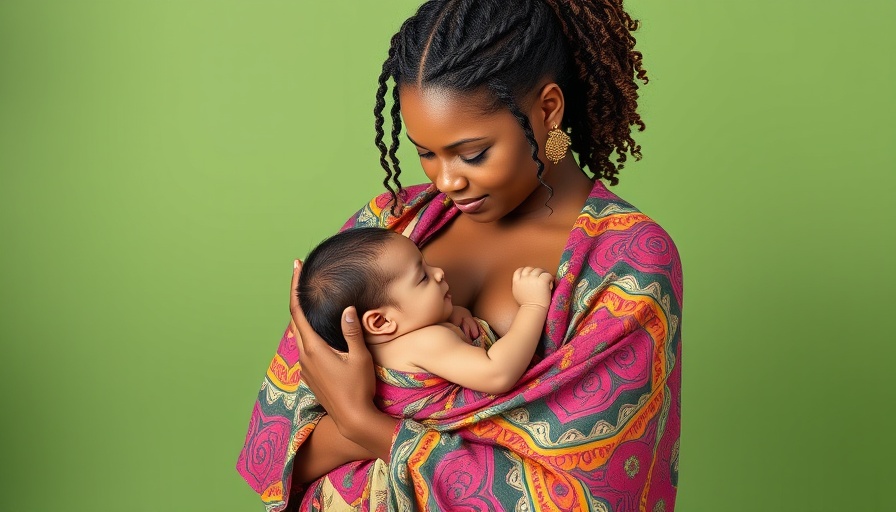
Understanding the Silent Battle of New Mothers
In Nigeria, the journey of motherhood is often overshadowed by a prevailing but silent struggle: maternal mental health. The troubling reality is that many new mothers find themselves facing perinatal mood and anxiety disorders that go unnoticed and untreated, threatening both their well-being and that of their newborns. As we observe Maternal Mental Health Week from May 5 to May 11, the theme "Your Voice, Your Strength" serves as a crucial reminder that sharing stories and experiences can empower women, fostering a supportive community in a society where mental health often lacks recognition.
An Alarming Crisis Amidst Isolation
Studies reveal shocking statistics, with postpartum depression (PPD) affecting a significant percentage of Nigerian mothers—between 14.6% to 30%. This statistic is alarming, particularly in a nation where limited access to mental health services exacerbates the burden. A report indicating that 22% of surveyed mothers in Nigeria experienced symptoms of moderate to severe depression illustrates this poignant crisis.
The societal pressures compelling women to uphold an image of strength only amplify the problem. New mothers, often fighting the mental health struggles of PPD, feel compelled to mask their experiences rather than seeking help. This culture of silence is not just a personal issue; it extends to the family and societal level, mirroring challenges seen across various demographics.
The Role of Social Media in Connecting Women
However, there is an emerging resilience among mothers, especially through the power of social media. Platforms like Instagram and WhatsApp are transforming isolated struggles into shared conversations, allowing women to advocate for themselves and seek help. With increasing numbers of digital health platforms offering structured mental health support, such as teletherapy and screening tools, the stigma surrounding maternal mental health is slowly being eroded.
Apps designed to engage mothers, such as FriendnPal and MyCareBuddy, are not simply technological innovations; they are lifelines offering hope and connection in an often isolating journey. The technological shift reflects a broader trend in Africa's evolving digital economy and global interconnectedness, as mental health emerges as a pressing issue that demands attention from various stakeholders.
The Future of Maternal Health Care in Nigeria
As policymakers and health leaders in Nigeria continue to grapple with these pressing mental health challenges, it is essential to emphasize that societal change is achievable. By raising awareness and fostering supportive networks, the narrative around maternal mental health can evolve, ultimately saving lives and enhancing the quality of life for mothers and their families.
Your Call to Action
The silent struggles of new mothers in Nigeria highlight the urgent need for supportive systems and awareness. As advocates, policymakers, and community members, it's imperative to engage in conversations surrounding maternal mental health, ensuring that every voice is heard and every story matters. Let us continue pushing for a future where mental health and motherhood can coexist with strength and vitality.
 Add Row
Add Row  Add
Add 


Write A Comment